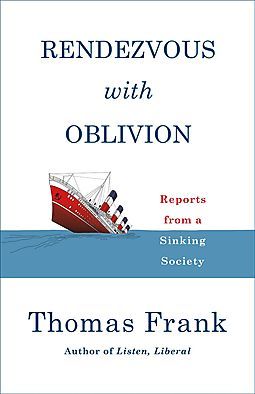What do you think?
Rate this book


240 pages, Hardcover
First published June 19, 2018
"In politics, of course, the scam and the fib are as old as the earth itself. Even so, the past decade has been a time of extraordinary innovation in the field…Millions of Americans came to believe that everything was political and that therefore everything was faked; that everyone was a false accuser so why not accuse people falsely; than any complaint or objection could ultimately be confounded by some clever meme; that they or their TV heroes had discovered the made-up argument by which they could drown out that still small voice of reality."
"The one percent got the of both ['a brief experience with deficit spending' then President Obama's 'famous turn to austerity']: not only were they bailed out, but the also chalked up some of their best years ever under Barack Obama, taking home 95 percent of the nation's income growth during the recovery."
"[E]very democratic movement from the Civil War to the 1960s aimed to bring higher ed to an ever widening circle, to make it more affordable. Ours is the generation that stood by gawking while a handful of parasites and billionaires smashed it for their own benefit."
"To a Washington notable of the pre-Trump era, a team of rivals was a glorious thing: it meant that elections had virtually no consequences for members of the consensus. No one was sentenced to political exile because he or she was on the wrong side; the presidency changed hands, but all the players still got a seat at the table.
"The only ones left out of this warm bipartisan circle of friendship were the voters, who woke up one fine day to discover what they thought they'd rejected wasn't rejected in the least."
"Trump succeeded by pretending to be the heir of populists past, acting the role of a rough-hewn reformer who detested the powerful and cared about working-class people. Now it is the turn of Democrats to take it back from him. They may have to fire their consultants."